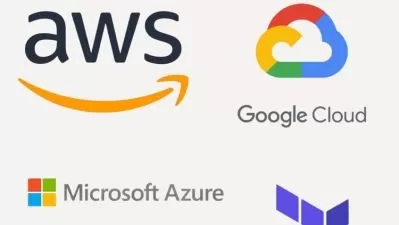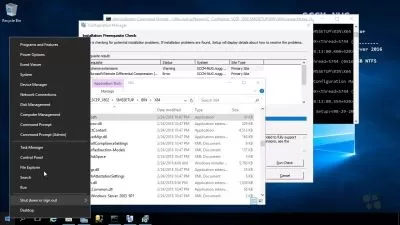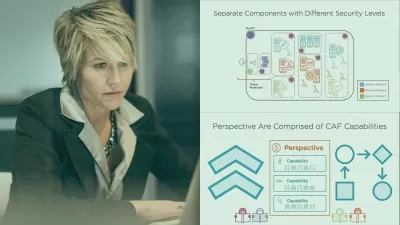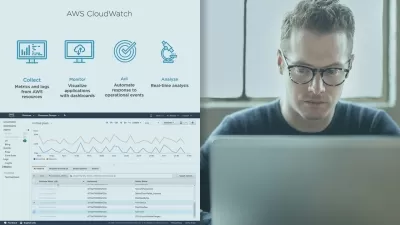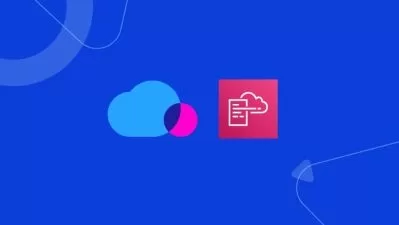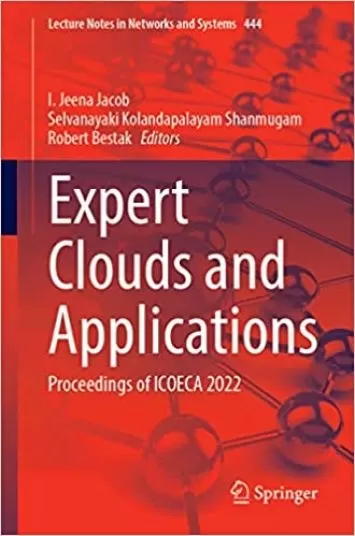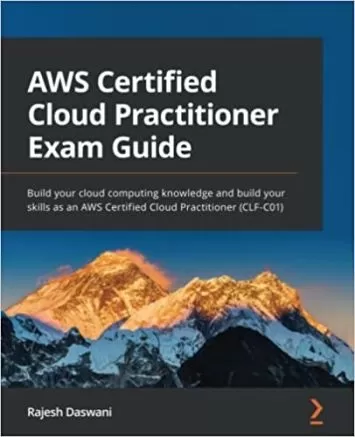About AWS Certified Cloud PractitionerLearn More
If you want to make smart choices about how your organization uses the Amazon Web Services cloud platform, you first need to understand it. To get there, you need to understand what the cloud is, what technologies it's built on, what kind of cost savings and operational benefits it can bring you, and how cloud-based applications differ from their traditional cousins. they are working.
Sort by:
Sorting
The newest
Most visited
Course time
Subtitle
Filtering
Courses
Subtitle

Linkedin Learning


Lynn Langit
Cloud Computing Careers and Certifications: First Steps 1:42:02
English subtitles
06/27/2023
Subtitle
![[NEW] Complete AWS Certified Cloud Practitioner CLF-C01 2023](https://traininghub.ir/image/course_pic/13319-x225.webp)
Udemy


Jon Bonso AWS Certified Cloud Practitioner, Developer, Solutions Architect
[NEW] Complete AWS Certified Cloud Practitioner CLF-C01 2023 10:52:07
English subtitles
05/30/2023
Subtitle
![[NEW] Complete AWS Certified Cloud Practitioner CLF-C01 2023](https://traininghub.ir/image/course_pic/13286-x225.webp)
Udemy


Jon Bonso AWS Certified Cloud Practitioner, Developer, Solutions Architect
[NEW] Complete AWS Certified Cloud Practitioner CLF-C01 2023 1:56:07
English subtitles
05/30/2023
Subtitle
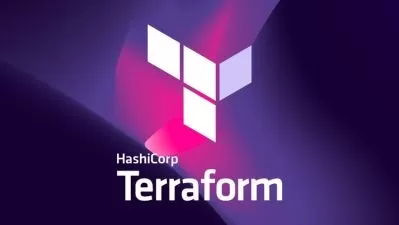
Udemy


Warp 9 Training
HashiCorp Certified: Terraform Associate Prep Course 2023 2:58:27
English subtitles
05/06/2023
Subtitle
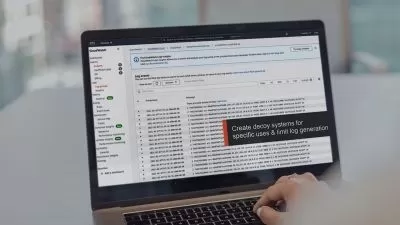
Pluralsight


Tim Coakley
Cloud Infrastructure Analysis with Prowler 24:20
English subtitles
04/18/2023
Subtitle

Pluralsight


Guillaume Ross
Cloud Infrastructure Analysis with Scout Suite 29:54
English subtitles
04/18/2023
Subtitle

Pluralsight


Ben Piper
AWS Networking Deep Dive: Virtual Private Cloud (VPC) 2:47:18
English subtitles
04/18/2023
Subtitle

Pluralsight


Jordan Yankovich
Introduction to AWS Cloud Security 1:07:17
English subtitles
04/18/2023
Subtitle

Pluralsight


Rushabh Doshi
Integrating an EKS Cluster with Other AWS Services 1:05:43
English subtitles
02/25/2023
Subtitle
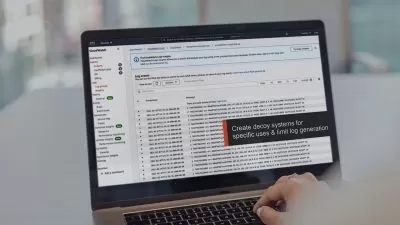
Pluralsight


Tim Coakley
Cloud Infrastructure Analysis with Prowler 24:20
English subtitles
02/25/2023
Books
Frequently asked questions about AWS Certified Cloud Practitioner
Cloud computing is the delivery of on-demand computing resources over the Internet. These resources include data storage, processing power, applications, physical servers, virtual servers, development tools, networking capabilities, and more. Cloud computing platforms help businesses build their complete infrastructure in a distributed fashion on the Internet instead of in their in-house data center. This offloads the costs of maintaining a company's own infrastructure to a cloud provider who will bill for only what they use. Cloud platforms offer elasticity to a business so that they can scale services based on workload. Virtualization in a cloud environment enables cloud platforms to provide more value by dividing physical hardware into virtual devices. The distributed nature of the cloud gives every user a low-latency connection, whether at the office or on the road.
Cloud platforms provide a variety of computing services to their customers. They also offer storage for companies to store all data types in the cloud, including PDFs and public images, and private company files. Their granular security allows companies to set access rights down to a specific endpoint, data file, or user. Infrastructure as a service (IaaS) is a common cloud service a company can use to manage operating systems, runtimes, data, and applications in the cloud. When a cloud provider offers a platform as a service (PaaS), they provide businesses with hardware that comes with pre-installed software, which helps developers to get started quickly. With software as a service (SaaS), the cloud provider manages software or a software suite for a business, and they just use it. Cloud platforms also offer serverless computing where a company doesn't manage the infrastructure, virtual machines, or servers. Instead, they deploy simple functions they can use on-demand.





